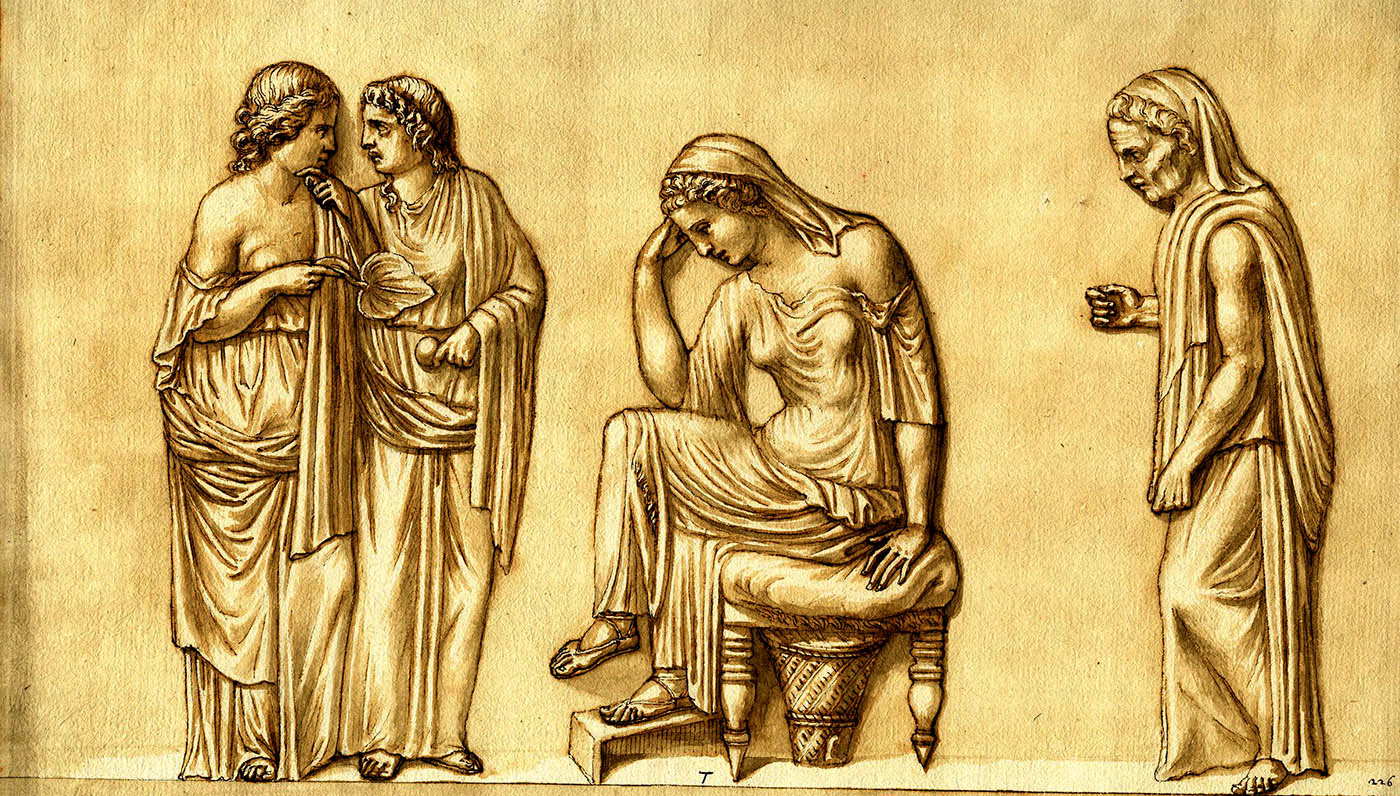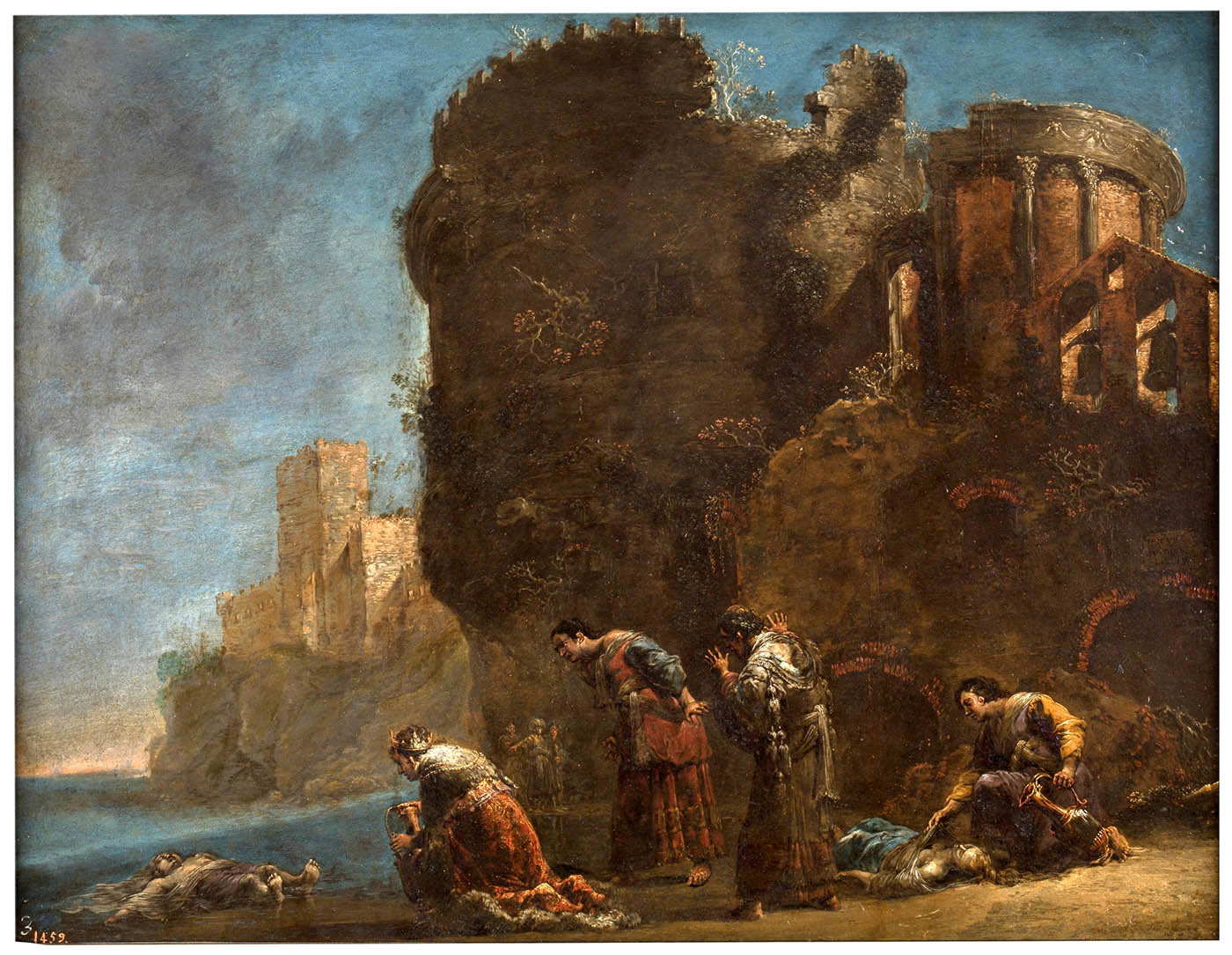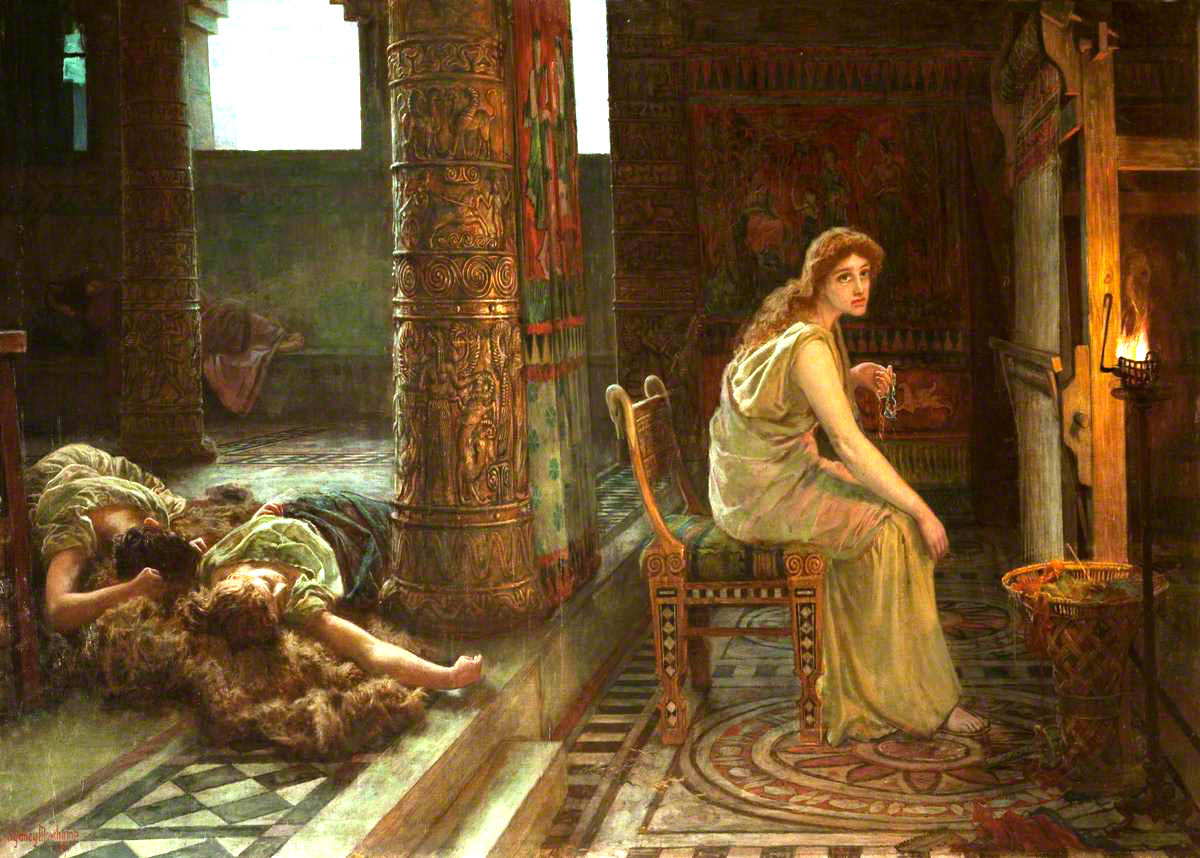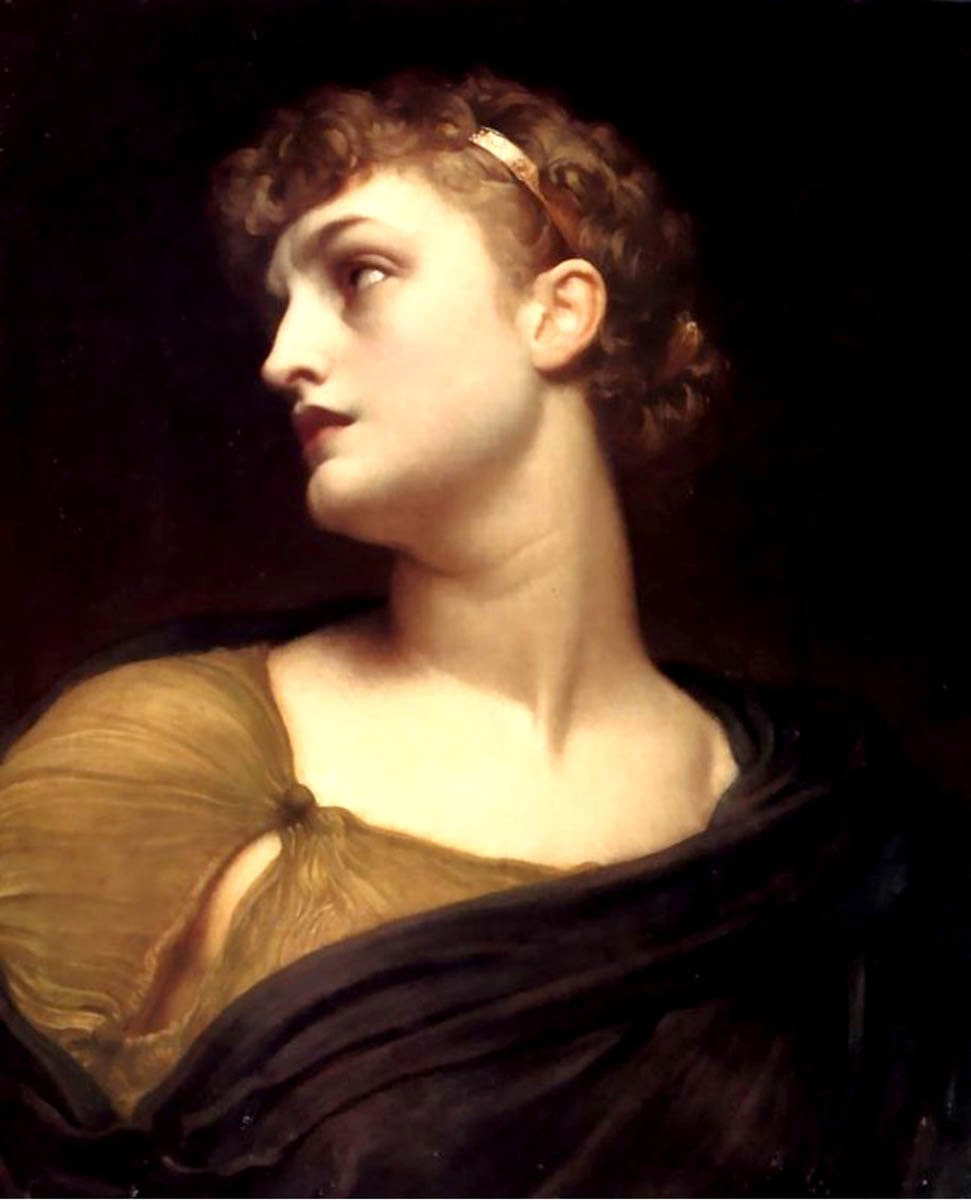Embark on a captivating journey as we unveil the untold stories of six formidable women from Greek mythology, each embodying the essence of womanhood amidst the tumultuous backdrop of the Trojan War. Delve into the intricacies of their experiences, unraveling the threads of courage, love, and resilience that define their roles in this epic tale. Join us in exploring the rich tapestry of these extraordinary women, weaving a narrative that transcends the conventional, offering a glimpse into the captivating complexities of their lives during this legendary conflict.

The Trojan War is a pseudo-historical event from ancient Greek history. Whether myth or history, the tales recounted in ancient literature of these Trojan and Greek women are fascinating accounts of wartime experiences. Whilst men lost their lives to war, women in cities lost everything else dear to them: their husbands, sons, homes, livelihoods, possessions, and freedom. Each of the six women discussed here reflects a fraction of these experiences, which are poignantly recognizable as universal.
Greek Women, Trojan Women, and the Trojan War

Relief showing Penelope, Eurykleia and two other women, drawing aquired 1814, via th British Museumhat was the Trojan War? In circa 1200 BCE, the ancient Greek world was populated with many different kingdoms. According to myth, at this time King Agamemnon of Mycenae successively brought each kingdom under his power, with himself as King of Kings. Agamemnon had set his sights on the neighboring kingdom of Troy, an affluent city under the power of King Priam and Queen Hecabe. When young Prince Paris of Troy came to Sparta and kidnapped (or seduced) Queen Helen, Agamemnon’s sister-in-law, Agamemnon took the opportunity to wage war on Troy.
In the name of revenge for his brother, Menelaus, Agamemnon drafted the entire Greek nation under his power to bring their weapons and lay siege to Troy. This cataclysmic event uprooted thousands of men from their homes and left thousands of Greek women at home to run households and kingdoms. Meanwhile, the women of Troy were similarly bereft of their men, who fought to defend their homes.
The oral tradition — a way of telling stories from generation to generation by word of mouth — was a method used to immortalize such conflicts. Storytelling was often the domain of Greek women. There were myths, poetry, and plays composed detailing the experiences of Greek women and men alike. Ancient Greek culture kept its history alive in the retelling of its history through myth. Greek women were a huge part of the oral tradition as their traditional role in the home meant that they were involved in the education of young children. The women told stories about bygone eras so as to preserve them in people’s memory.

As Queen of Troy, Hecabe was a woman who had a lot to lose. Her story begins with riches and ends with rags… Hecabe married King Priam and together they built one of the most formidable kingdoms on the eastern coast of the Aegean Sea. She had nineteen children with King Priam including the most famous: Hector, Paris, Cassandra, and Polyxena.
During the Trojan War, Hecabe was forced to watch as each one of her sons was killed, one after the other, sending her into a well of grief. Attempting to save her youngest, Polydorus, she sent him to a trusted ally named King Polymestor. However, this was a mistake. When news of Troy’s fall reached the king’s ears, he killed the boy and took the treasure for his own.
“There is no end to my sickness, no term.
One disaster comes to vie with another.”
– Hecuba, 66, Euripides
Hecabe lost everything due to the Trojan War: all her sons were all killed, her daughters were either killed or forced into slavery, her husband was murdered, and her illustrious city was burnt to the ground. Her last surviving daughter, Polyxena was taken after the war to be a human sacrifice.
Hecabe herself became a slave for Odysseus of Ithaca. Despite slavery, Hecabe was afforded one chance for revenge. The traitorous Polymestor came to visit the fallen city before the Greek troops set sail for home after the Trojan War. Hecabe greeted him and his two sons and convinced them to come into a tent to collect Troy’s last remaining treasure. Whilst there, she killed Polymestor’s sons and then blinded the king in a fit of vengeful rage. After this, Hecabe finally succumbed to her misery; she threw herself into the sea to drown.

Cassandra was a princess of Troy, daughter of Priam and Hecabe. She was a beautiful young woman with a passion for her role as a priestess of Apollo. The God Apollo desired Cassandra, so he tried to entice her affection with the gift of prophecy. When Cassandra accepted the gift but declined the god’s romantic advances, he angrily cursed her: she would be able to see the future, but the catch was that no one would believe a word that she said.
Cassandra was cursed to a life of ridicule and ostracism — to be seen as the strange woman spouting crazy theories. Even when Cassandra predicted the fall of Troy and untold deaths, no one listened.
Cassandra had taught her brother the ways of prophecy and his prophecies were believed, unlike Cassandra’s. The inverted parallel creates a harrowing image of the way women have been treated throughout history: whilst women are often ignored and disbelieved, their male counterparts are often trusted and listened to.
When Troy fell to the Greeks, Cassandra ran to the Temple of Athena for sanctuary and clung to the Goddess’ statue for protection. However, the Greek warrior, Ajax, savagely raped her at the foot of the Goddess’ statue. He was later punished for his crimes by the Goddess who blasted him and his ship to pieces when he was returning home across the sea. Athena then blasted Ajax with another lightning bolt just for good measure.
Cassandra was taken by Agamemnon to be his concubine at his home in Mycenae, and Agamemnon’s wife, Clytemnestra, was not happy to see either of them, and so she killed them both. Cassandra had foreseen her death, but she was powerless to change it. As usual, no one would listen.

Andromache was a wise woman who knew full well the fate of women both in war and out of it. She was not reticent about warning Hector — her husband and leader of the Trojan army — of her dependence on him for her livelihood. Like many other women in ancient societies, a dead husband meant no protection and provisions for the wife and family.
In the Iliad, she tells Hector:
”It would be better for me, should I lose you, to lie dead and buried, for I shall have nothing left to comfort me when you are gone, save only sorrow. I have neither father nor mother now…. Nay — Hector — you who to me are father, mother, brother, and dear husband- have mercy upon me; stay here…”
Andromache had married into the royal Trojan family; this meant leaving all her immediate family who lived in Cicilian Thebes, behind. Whilst she was in Troy, her entire family was killed when the Greek army sacked the surrounding cities. Therefore, Hector became her emotional support, and her child was the last remaining link to her own bloodline.
During the years of the Trojan War, Andromache had a young child with Hector named Astyanax, meaning “lord of the city”. In retrospect, it was a wistful naming… Astyanax never lived to be old enough to be King of Troy, which he should have done as Hector’s heir. After the war, when the Greek troops dragged Andromache from the ruined city, they snatched Astyanax from her arms and threw him from the city walls. After this immense trauma, Andromache was taken as a slave by Neoptolemus, who repeatedly raped her, so she bore him three sons. After his death, she eventually managed to return to Asia Minor with her youngest son, Pergamus.
4. Penelope: Queen of Ithaca

Penelope was one of the most famous Greek women, famed for her cleverness. She was the cousin of Helen of Sparta and she married Odysseus, a man to match her intelligence. When Odysseus was in the Trojan War for ten years, Penelope oversaw their kingdom on the island named Ithaca. She raised Telemachus, their son born just a few months before the war, by herself.
Penelope faced many problems as a lone queen. After the Trojan War had concluded, Odysseus did not return home for another ten years. The islanders assumed he had died at sea, and so the social expectation was that Penelope should remarry. Penelope was very resistant to this idea as she hoped that Odysseus would return.
Over three hundred suitors had arrived on the island and set up residence in Penelope’s home to ask for her hand in marriage. Penelope saw none of them as worthy as Odysseus to be her partner. She also feared that remarrying would put her son, Telemachus, in a dangerous position as an heir. A new husband would want his own child to succeed him, and that could potentially bring problems for Telemachus’ life.
Penelope thought up many clever delaying tactics so that she could avoid getting remarried. First, she argued logically that no one knew with absolute certainty that Odysseus was dead. To marry whilst being married would be an insult to Odysseus, should he return. When this no longer won over the suitors, she made a compromise that she would choose a new husband after she had completed weaving a shroud. But she secretly unraveled the shroud at night. This gave Penelope three more years of reprieve. After this, she gave the suitors many trials and tasks to prove their worth. Eventually, Odysseus returned home and Penelope happily welcomed him back.

Helen of Troy is arguably the most famous of all the Greek women from ancient myth. Her beauty held such power over men that she was blamed for the Trojan War, when perhaps it was not her fault at all. The Goddess Aphrodite had given the young Prince Paris a prize for choosing her as the “most beautiful goddess” in a competition. The prize was that Paris would have the most beautiful mortal woman as his lover. And so, Paris was given Helen by Aphrodite. It did not seem to matter to the goddess that Helen was already married, or that Paris himself was already married, too. The goddess Aphrodite was known for relishing and instigating drama. Helen was taken — some say against her will, some say she was willing — by Paris to Troy. Hence, Helen left her home in Sparta as Queen to become a Princess of Troy.
In the Iliad’s depiction of Helen, she appears to be a puppet of Aphrodite’s power. Helen complains that Aphrodite is forcing her actions: “Maddening one, my Goddess, oh what now? Lusting to lure me to my ruin yet again?”
(Iliad 3.460-461)
Perhaps Helen had pursued a life of passion, or perhaps she had been taken unwillingly; the myth varies and so is open to adaptation depending on what story one wishes to tell. She was passed along like a prize from man to man every time someone killed her husband. Finally, she was returned to her original husband, Menelaus. She was not killed because she managed to convince Menelaus that she would love him again as her husband. Helen returned home, but the destruction left in her wake often meant she was unwelcome with other Greek women.

Clytemnestra was a Greek woman wronged before the Trojan War had even begun. As a partner to the King of Kings, Agamemnon, Queen Clytemnestra herself held much power. She was very proud of her eldest daughter, Iphigenia, but was bereft of her too soon.
Clytemnestra was tricked into escorting her daughter to her death. Iphigenia and Clytemnestra were summoned to the port of Aulis, where the Greek fleet was gathering before they set sail to Troy. Clytemnestra was told that Iphigenia would marry the upcoming Greek hero, Achilles, and so they were to be united before Achilles went to war. Achilles, at a young age himself, had already become known as the best fighter in the Greek army. He was an impressive husband and Clytemnestra was delighted for her daughter to be given such an esteemed connection through marriage.
Unfortunately, the marriage was a hoax. Iphigenia was dressed as a bride, but she would die unwedded. Her own father, Agamemnon, used her as a human sacrifice to appease the Goddess Artemis, who was at that time angry at the Greeks. Clytemnestra was distraught at the murder of her daughter, and from that point on, she plotted the death of her husband.
When Agamemnon returned from Troy after ten years, Clytemnestra and her new lover, Aegisthus, murdered Agamemnon. She represents the Greek women who enjoyed the absence of their husbands — life was better without her murderous husband. Clytemnestra did not want to resume her life with him.
Clytemnestra got revenge for the murder of her daughter. However, victory did not last long for Clytemnestra, who was in turn murdered by her son Orestes, in revenge for the murder of his father. The cycle of blood in this household was endless.
